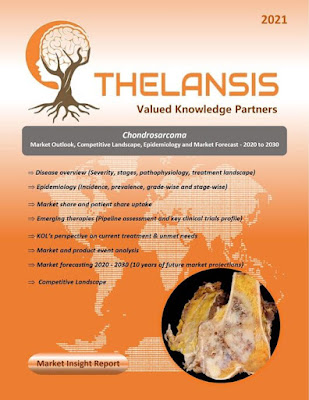Esophageal Squamous Cell Carcinoma (ESCC) – Market Outlook, Epidemiology, Competitive Landscape, and Market Forecast Report – 2023 To 2033
Esophageal squamous cell carcinoma predominantly manifests in the upper and middle segments of the esophagus and is commonly linked to tobacco use and alcohol consumption. Despite treatments aimed at cure, recurrence frequently manifests in patients. Upon suspicion of recurrence, patients undergo comprehensive evaluations such as PET/CT scans, endoscopic ultrasound, upper endoscopy, biopsy, or other relevant diagnostic techniques tailored to the suspected site of recurrence. The standard therapeutic strategy for locally advanced, operable esophageal squamous cell carcinoma involves chemoradiation (CRT) with or without surgical intervention. For patients with early-stage T1N0 esophageal squamous cell carcinoma, treatment options include surgery, endoscopic resection (either by endoscopic submucosal dissection or endoscopic mucosal resection), or radiation therapy alone, with the treatment approach being customized for each patient.
Thelansis’s “Esophageal Squamous Cell Carcinoma (ESCC) Market Outlook, Epidemiology, Competitive Landscape, and Market Forecast Report – 2023 To 2033" covers disease overview, epidemiology, drug utilization, prescription share analysis, competitive landscape, clinical practice, regulatory landscape, patient share, market uptake, market forecast, and key market insights under the potential Esophageal Squamous Cell Carcinoma (ESCC) treatment modalities options for eight major markets (USA, Germany, France, Italy, Spain, UK, Japan, and China).
KOLs insights of Esophageal Squamous Cell Carcinoma (ESCC) across 8 MM market from the centre of Excellence/ Public/ Private hospitals participated in the study. Insights around current treatment landscape, epidemiology, clinical characteristics, future treatment paradigm, and Unmet needs.
Esophageal Squamous Cell Carcinoma (ESCC) Market Forecast Patient Based Forecast Model (MS. Excel Based Automated Dashboard), which Data Inputs with sourcing, Market Event, and Product Event, Country specific Forecast Model, Market uptake and patient share uptake, Attribute Analysis, Analog Analysis, Disease burden, and pricing scenario, Summary, and Insights.
Thelansis Competitive Intelligence (CI) practice has been established based on a deep understanding of the pharma/biotech business environment to provide an optimized support system to all levels of the decision-making process. It enables business leaders in forward-thinking and proactive decision-making. Thelansis supports scientific and commercial teams in seamless CI support by creating an AI/ ML-based technology-driven platform that manages the data flow from primary and secondary sources.
_page-0001.jpg)

Comments
Post a Comment